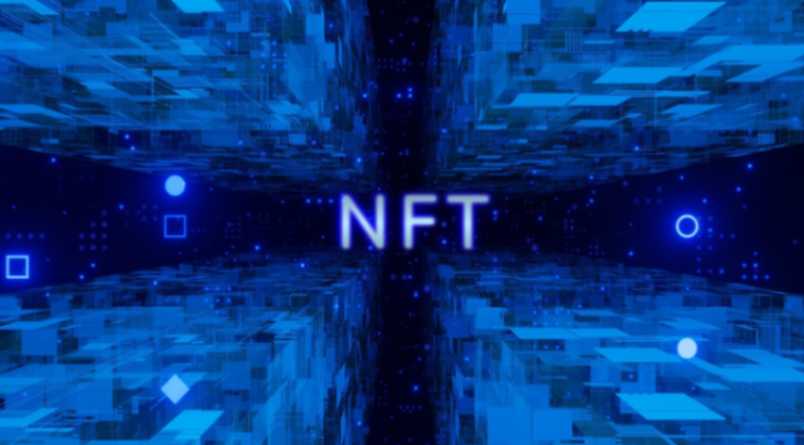The fintech sector has experienced explosive growth in recent years, driven by advancements in technology and the increasing demand for innovative financial solutions. Among the many technologies driving this transformation, Ethereum stands out as a game-changer. Fintech Zoom, a leading platform for financial technology news and analysis, provides comprehensive insights into how Ethereum is reshaping the fintech landscape. This article explores Ethereum’s role in fintech, its unique features, and the transformative impact it is having on the industry.
Introduction to Ethereum
What is Ethereum?
Ethereum is a decentralized, open-source blockchain platform that enables developers to build and deploy smart contracts and decentralized applications (DApps). Unlike Bitcoin, which primarily serves as a digital currency, Ethereum offers a programmable blockchain that supports a wide range of applications beyond cryptocurrency.
The Vision of Ethereum
Launched in 2015 by Vitalik Buterin, Ethereum was created with the vision of providing a platform where anyone can create and execute smart contracts without the need for intermediaries. This vision is rooted in the principles of decentralization, transparency, and security, which are fundamental to the blockchain technology that underpins Ethereum.
Key Features of Ethereum
Smart Contracts
One of Ethereum’s most significant innovations is the introduction of smart contracts. These are self-executing contracts with the terms of the agreement directly written into code. Smart contracts automatically execute and enforce agreements when predefined conditions are met, eliminating the need for intermediaries and reducing the risk of fraud.
Decentralized Applications (DApps)
Ethereum’s platform allows developers to build and deploy decentralized applications (DApps). Unlike traditional applications, DApps run on a decentralized network of nodes, providing greater security, transparency, and resilience. This makes them particularly attractive for fintech applications where trust and security are paramount.
Ethereum Virtual Machine (EVM)
The Ethereum Virtual Machine (EVM) is the runtime environment for smart contracts on Ethereum. It is a Turing-complete virtual machine that allows developers to write and execute code on the Ethereum blockchain. The EVM ensures that all nodes in the network can execute smart contracts in a consistent and verifiable manner.
Ether (ETH)
Ether (ETH) is the native cryptocurrency of the Ethereum platform. It is used to pay for transaction fees and computational services on the Ethereum network. Ether also serves as a store of value and a medium of exchange within the Ethereum ecosystem.
Ethereum’s Impact on Fintech
Decentralized Finance (DeFi)
One of the most transformative impacts of Ethereum in the fintech sector is the rise of decentralized finance (DeFi). DeFi refers to a broad range of financial services, including lending, borrowing, trading, and investing, that operate without traditional intermediaries like banks. Built on Ethereum, DeFi platforms leverage smart contracts to automate and decentralize financial transactions.
Key DeFi Applications
- Decentralized Exchanges (DEXs): DEXs like Uniswap and Sushiswap allow users to trade cryptocurrencies directly from their wallets without relying on centralized exchanges.
- Lending and Borrowing Platforms: Platforms like Aave and Compound enable users to lend and borrow cryptocurrencies in a decentralized manner, with interest rates determined by supply and demand.
- Stablecoins: Stablecoins like DAI, which are built on Ethereum, provide a stable store of value that is pegged to fiat currencies, offering stability in the volatile cryptocurrency market.
Tokenization
Ethereum has also facilitated the tokenization of assets, which involves representing real-world assets like stocks, bonds, real estate, and even art as digital tokens on the blockchain. Tokenization enhances liquidity, reduces transaction costs, and enables fractional ownership, making it easier for investors to access and trade a wide range of assets.
Cross-Border Payments
Ethereum is revolutionizing cross-border payments by providing a fast, secure, and cost-effective alternative to traditional payment systems. Ethereum’s blockchain technology enables near-instantaneous transactions with lower fees, reducing the reliance on intermediaries and streamlining the payment process.
Identity Verification
In the fintech industry, identity verification is crucial for compliance with regulatory requirements and preventing fraud. Ethereum-based solutions are emerging to provide secure, decentralized identity verification systems. These systems allow users to control their own identity data and share it with service providers in a verifiable and privacy-preserving manner.
Challenges and Opportunities
Scalability
One of the main challenges facing Ethereum is scalability. As the number of transactions on the network grows, the current infrastructure struggles to handle the increased load, leading to higher transaction fees and slower processing times. However, Ethereum 2.0, an upgrade to the Ethereum network, aims to address these scalability issues through a series of improvements, including the transition to a proof-of-stake (PoS) consensus mechanism and the introduction of shard chains.
Regulatory Environment
The regulatory environment for cryptocurrencies and blockchain technology is still evolving. Fintech companies leveraging Ethereum must navigate complex and sometimes uncertain regulatory landscapes. Clear and consistent regulations are needed to foster innovation while protecting consumers and maintaining financial stability.
Innovation and Development
Despite these challenges, Ethereum continues to be a hotbed of innovation and development. The vibrant developer community is constantly working on new tools, platforms, and protocols to enhance the functionality and usability of Ethereum. This ongoing innovation presents numerous opportunities for fintech companies to explore new business models and create value for their customers.
Conclusion
Fintech Zoom’s coverage of Ethereum highlights the transformative potential of this pioneering blockchain platform in the fintech industry. From enabling decentralized finance and tokenization to revolutionizing cross-border payments and identity verification, Ethereum is at the forefront of the digital financial revolution. While challenges remain, the ongoing development and innovation within the Ethereum ecosystem promise to unlock new possibilities and drive the future of fintech.
For those looking to stay informed about the latest trends and developments in the intersection of fintech and blockchain technology, Fintech Zoom offers a wealth of information and insights. By providing comprehensive coverage and expert analysis, Fintech Zoom helps its readers navigate the rapidly evolving fintech landscape with confidence and clarity. Read More



Can you be more specific about the content of your article? After reading it, I still have some doubts. Hope you can help me.
Your article helped me a lot, is there any more related content? Thanks!
Your point of view caught my eye and was very interesting. Thanks. I have a question for you.